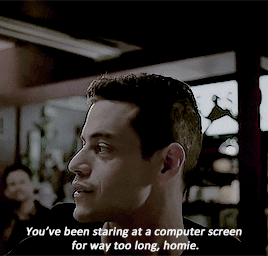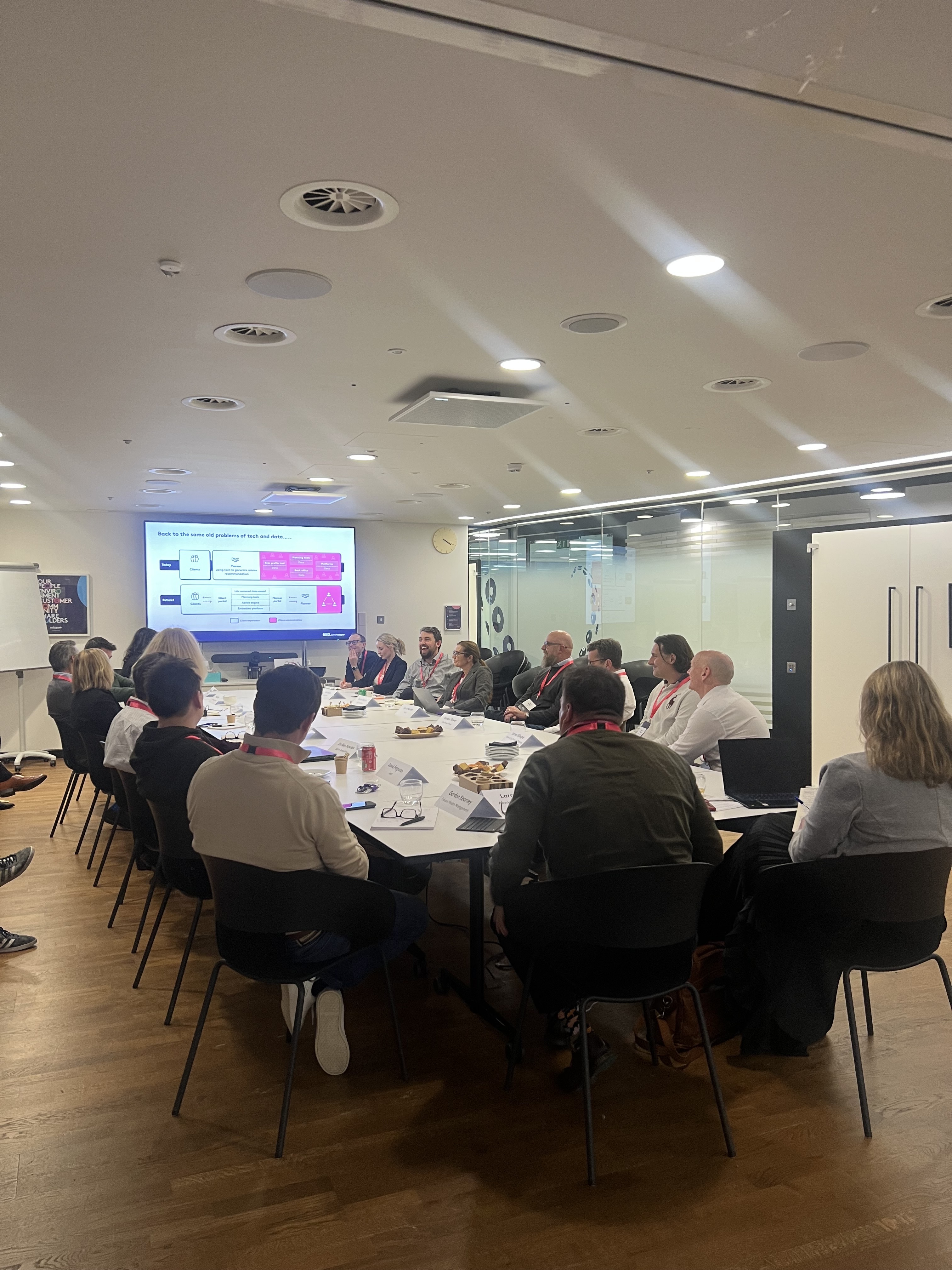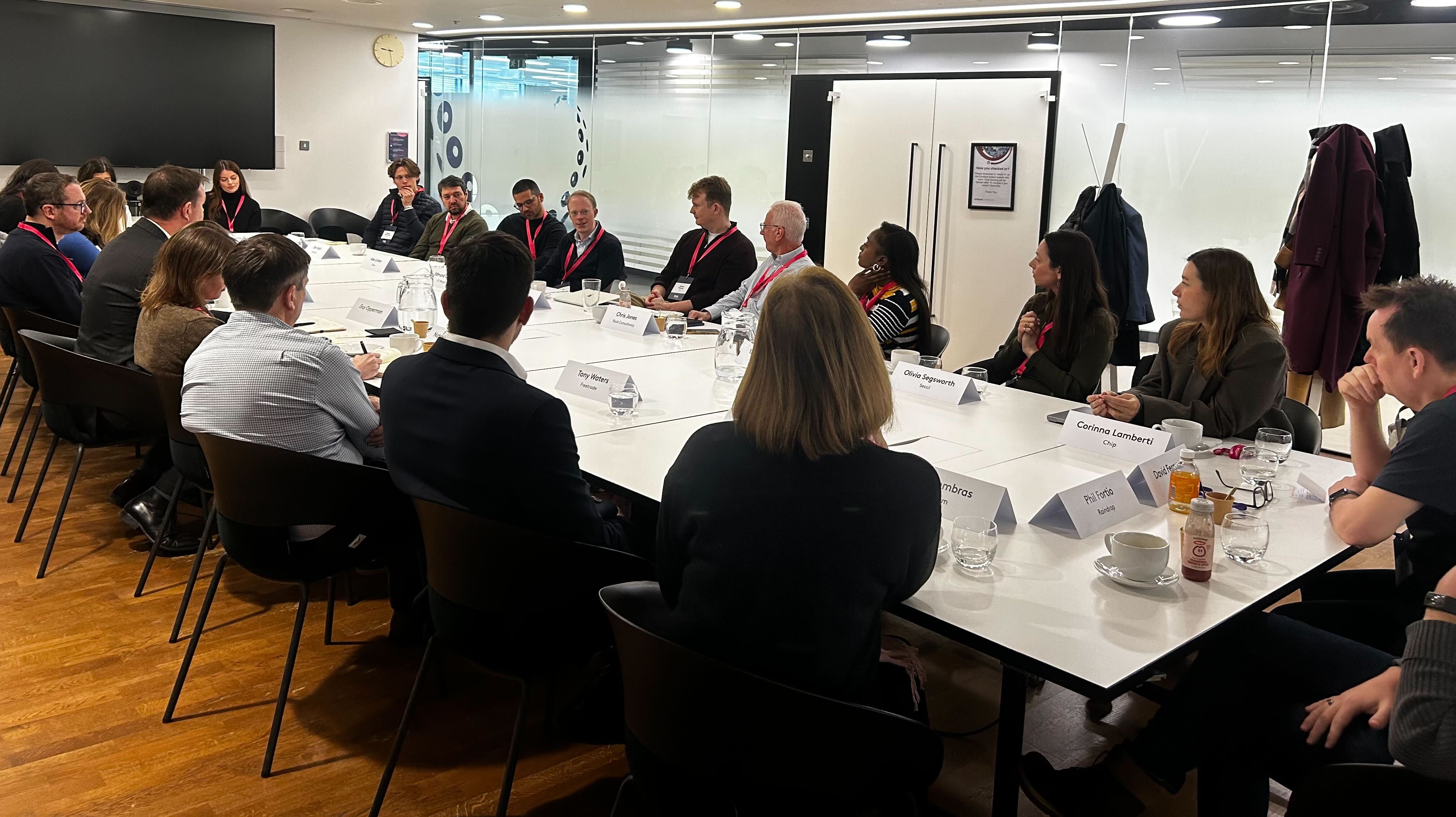We’ve all had those days as engineers. The stars align, your mind flies over the entire architecture of what you’re working on, and you can see clearly how everything is connected, and exactly what tweaks need to be made. You’re on a roll.

Some engineers call this a flow state. It’s what happens when you start an interesting project on Friday evening, and the next thing you know it’s Saturday lunchtime and you’ve just come round from what feels like a trance. Except you’ve got loads of work done, been super creative and achieved more than you normally would in a whole week.
Personally, if I could bottle that feeling and sell it on a darknet marketplace, I would. However, as with most things, a flow state is not achieved by magic but through hard work and consistency (sorry kids!). Waiting to be granted a quiet afternoon where you’re properly hydrated, a comfortable temperature, riding high on your third coffee of the day and at just the right point in your Linkin Park playlist is futile – and it takes away your control.
Deep work is like a muscle – in that if you repeat the same exercises over and over again, it will start to become second nature, and your brain will automatically start to respond to those familiar cues. You can get the flow state on tap – you just need to know how. Here’s what works for me…
Isolated time with no distractions
I have to block out entire afternoons in my calendar specifically for deep work – otherwise it won’t be given the time and space it needs to breathe. A few hours isn’t enough for me, but you may be different.
I am also very easily distracted. If a message pops up, I will click on it. And if someone starts talking to me, I will get sucked into a conversation and struggle to get back into the “zone.” The way I overcame this initially was to change my Slack status and pause notifications.
Nobody sent me any direct messages during this time (thanks team!), and I was able to get my head down… until a group conversation or two caught my eye, and then I was sucked back in.
I realised that to truly experience a flow state, I would need to be more self-disciplined. So I changed my status, let everybody know I could be contacted by email in case of an emergency, and closed Slack. So far, it has worked perfectly.
Low temperatures
This one doesn’t take much explanation. Us human beings tend to get sleepy in hot, stuffy environments. I’ve certainly fallen asleep at some inappropriate times because a room was too warm!
Again, you might be different, but I prefer to do deep work in a cool room, usually with the window open so I can stay alert.
Challenging, independent work
The type of work you do in a flow state is important too. I find that tasks need to be challenging enough to keep me interested, but not impossible for me to solve on my own.
I need to be able to investigate, confirm my choices and progress the work without contacting other people. Most importantly for me, I need to have had the work in the back of my mind for a while. (Passive processing in problem solving is probably worthy of another article in itself, but the basic message is this: the foundations for eureka moments are laid when you’re not actively thinking about the problem!)
Space to dance (bear with me!)

Dancing around while working sounds silly, and I’m sure it would also look ridiculous to anyone watching. But when it’s just you and the work, who cares?!
Getting up and moving every now and then, in any way that you can, is important for your mind and body. Plus, it can be hard to resist when you’re vibing to playlist full of bangers.
Deep work is a muscle – use it wisely
Achieving a flow state is much like any kind of physical training. You don’t go to the gym until you can bench press a certain number of kilos and then stop – you keep going for ongoing maintenance, and so you can work towards changing goals. You have to keep working that muscle for the habit to stick!
It’s also a good idea to spend some of your allotted time reflecting on what you achieved, and what you hope to do differently next time. Usually, I’m on my own, so I spend 10 minutes or so taking my rubber duck through the last few hours and sharing my progress. Whatever works for you!
It’s important to remember that flow states won’t be suitable for all kinds of work. There are always going to be scenarios where pair programming or just regular ways of working will be more suitable.
Lastly, communication with your team is key. We’ve been spinning up a new squad recently and talking about our preferred ways of working. We came to the decision to try and use mornings as “regular work time” and afternoons as “deep work time”. As long as we’re not blocking anyone else, and there are no emergencies, then we’ve cracked the code.
And if it doesn’t work out, we’ll do what we always do – keep experimenting and iterating until we find something that works. Happy flow state everyone! Now stop reading this and go concentrate 😊



